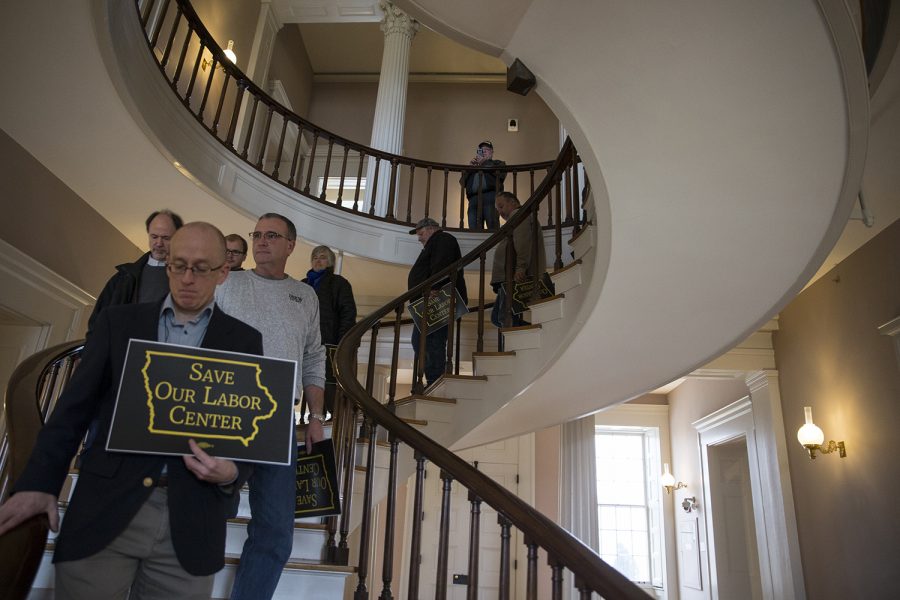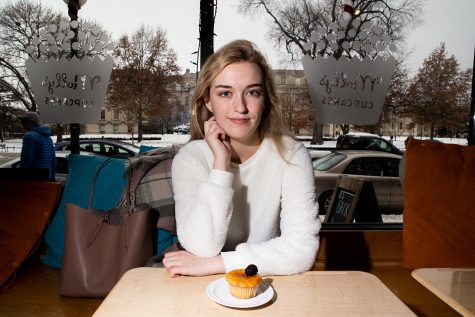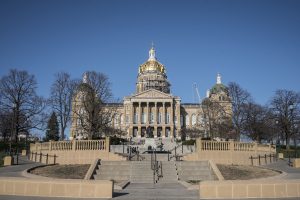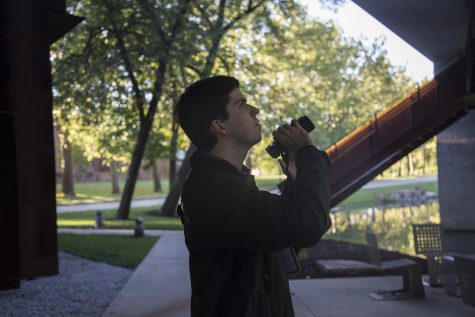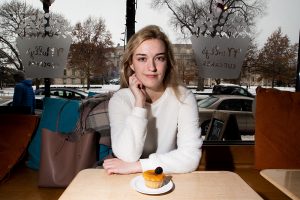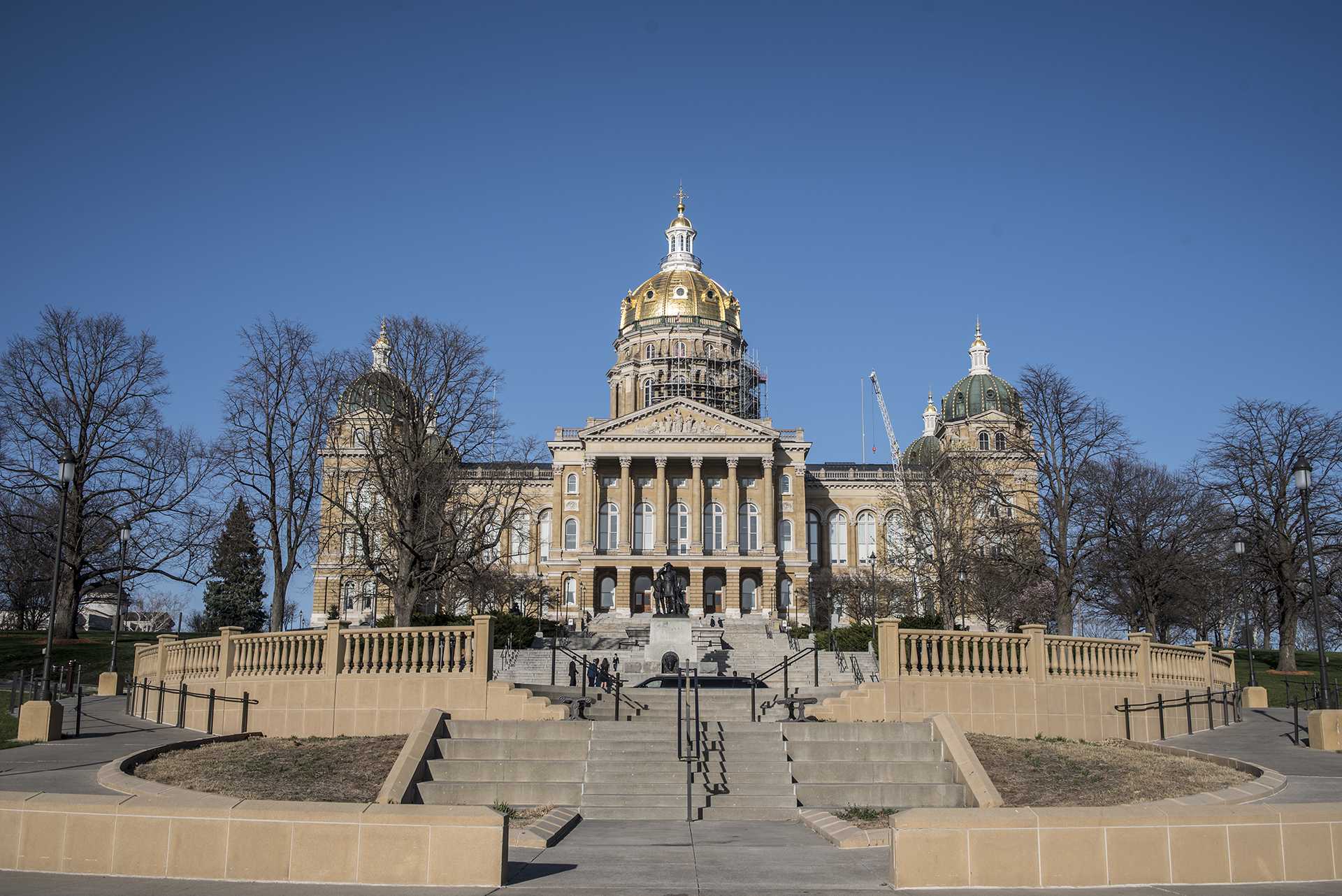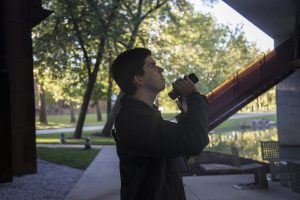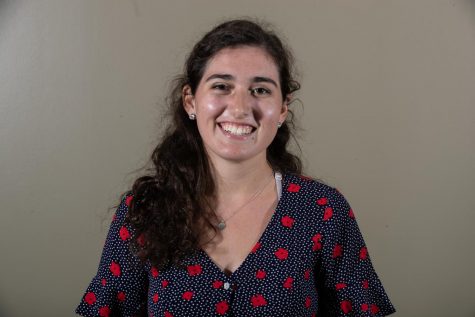UI commitment to Labor Center sought after regents approve closure
After the Board of Regents approved the closure of the Labor Center, community members gathered in protest and outreach.
Crowd members move out of the meeting room to walk to President Bruce Harreld’s office during the Labor Center Statewide Summit in the Old Capitol Senate Chambers on Monday Dec. 3, 2018. Members of the university and the community addressed concerns over the Labor Center closure before taking their petition to Harreld’s office.
December 4, 2018
After the state Board of Regents in November approved closing the University of Iowa Labor Center, Iowans from across the state gathered Monday to protest the decision and take efforts to keep the center open directly to UI President Bruce Harreld’s office.
Community members gathered for the Statewide Labor Center Summit and converged in the Old Capitol Senate Chamber. Speakers voiced their opposition to closing the Labor Center.
Following midyear budget cuts in fiscal 2018, the UI proposed closing the center along with several other campus centers and institutes. Despite months of protests from students, faculty, and community members, along with proposed budget-shifting efforts from the Labor Center, the regents approved closing it at their Nov. 16 meeting.
UI alum Ron Clark, a cofounder of the Riverside Theater, began speaking first about stories of his family ties to the Labor Center.
RELATED: UISG will not back UI Labor Center closure
“Now, we have come together in this historic location because after months of public discussion, it is time to save the Labor Center,” he said.
Clark then introduced representative speakers from various groups. UI alumni, faculty, students, parents, workers, faith organizations, civil-rights groups, legislators, and Labor Center staff all spoke on behalf of the center.
UI alum and attorney William Bribriesco said, “What does the Labor Center do? It helps workers in the state of Iowa. It provides a hub, a center place for educational pursuits, for research, it reaches out to other groups in the state of Iowa. Who benefits? Employees benefit. Employers benefit. The state of Iowa benefits.”
A common theme among speakers was disappointment and frustration with UI administrators for cutting the Labor Center.
RELATED: UI Labor Center’s closure official with Iowa Board of Regents’ approval
Behind the podium where speakers stood, a board displayed, “On behalf of the UI constituent group I represent, I commit to do my part to save the Labor Center and worker education.”
Beneath the quote was the list of UI constituent groups representing different areas of the Iowa community. As each representative spoke, respective groups were checked off.
Organizers of the Labor Center Summit invited Harreld and UI administrators to speak on behalf of their decision, but none were in attendance.
The Labor Center Summit members marched to Harreld’s office after the meeting to deliver the board and petition signed by various groups. Harreld was out of the office, so a message was left with his secretary.
As reported by The Daily Iowan, Harreld said in an October interview that the decision to close the Labor Center and other institutes had to be done quickly to decide what to cut from the budget by the end of fiscal 2018 on June 30. To do so, administrators used studies on centers and institutes such as the Labor Center that examined their role in UI students’ education.
When Jen Sherer, the director of the Labor Center, took the podium, she called her employees in attendance to join her. The audience gave them a standing ovation.
“I want to say I am truly looking forward to continuing the discussion we are having,” Sherer said. “I think we are at a point where they know we are doing our part; all we need is for the university to do its part.”



